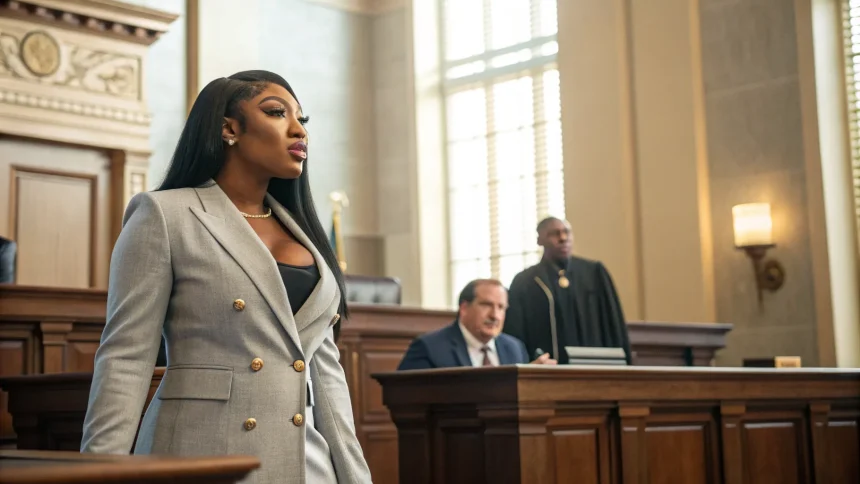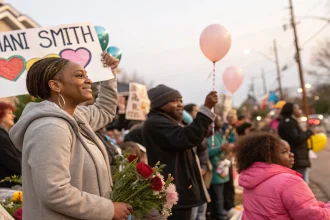The recent legal battle between Megan Thee Stallion and Tory Lanez concluded with a victory for the female rapper, but the case has sparked important conversations about how victims are treated in the justice system. Despite being the injured party in the incident, many observers noted that Megan appeared to face scrutiny and questioning that made her seem like the defendant rather than the victim.
Lanez was found guilty in the case that stemmed from a 2020 incident in which Megan Thee Stallion, whose legal name is Megan Pete, was shot in the feet. Throughout the legal proceedings, the Grammy-winning artist faced intense public scrutiny, social media harassment, and questioning of her character.
The Courtroom Experience
The trial highlighted a troubling pattern seen in many cases involving female victims. Megan’s testimony, behavior, and past were all placed under a microscope. Legal experts have pointed out that the defense strategy relied heavily on attempting to discredit her character rather than addressing the facts of the case.
“The way Megan was treated during this process mirrors what many victims face when they come forward,” said a spokesperson from a victims’ rights organization. “The focus shifts from the alleged crime to questioning the victim’s credibility.”
During court proceedings, Megan was forced to relive the traumatic incident multiple times while facing aggressive questioning about her actions before, during, and after the shooting. This approach is common in cases involving violence against women, where victims often find themselves defending their own behavior rather than being protected as the injured party.
Public Reaction and Social Media Impact
The case played out not just in the courtroom but in the court of public opinion. Social media platforms became battlegrounds where Megan faced harassment, mockery, and disbelief. Many users took sides before all evidence was presented, with a significant number choosing to doubt her account despite medical evidence confirming her injuries.
Hip-hop communities appeared divided, with some artists publicly supporting Lanez despite the serious allegations. This division highlighted the challenges women face when coming forward with accusations against men in the entertainment industry.
The public scrutiny included:
- Questions about her initial reluctance to identify Lanez as the shooter
- Speculation about her relationship with Lanez
- Criticism of her behavior before and after the incident
Broader Implications for Victims
Advocates for victims of violence point to this case as an example of why many people, especially women, hesitate to report crimes. The fear of being put “on trial” themselves serves as a powerful deterrent.
“When high-profile cases like this one show victims being treated as suspects, it sends a chilling message to others who might be considering coming forward,” explained a representative from a women’s rights organization.
The victory for Megan represents a legal win, but the emotional toll of the process raises questions about the true cost of seeking justice. Many victims report that the legal process itself becomes a second trauma, sometimes as difficult as the original incident.
Legal experts suggest that reforms in how courts handle cases involving violence against women are needed to prevent victims from feeling as though they are the ones being judged.
While Megan’s case ended with Lanez being held accountable for his actions, the path to that outcome revealed persistent problems in how society and the legal system respond to victims. Her experience serves as a reminder that legal victory doesn’t always mean that justice was served in a humane and supportive manner.









